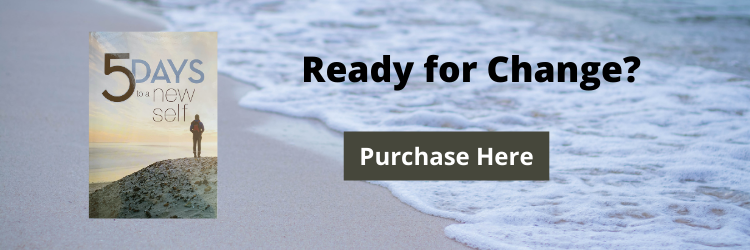5 Troublesome Trademarks of Pornography Use

The prevalence of people turning to pornography worldwide has been on the rise over the last several years and we have found many people use it as a destructive coping mechanism. Often, people utilize porn from a larger desire to hide or to escape, but what are the nuances that really factor into its ability to damage us and our relationships? Sexual relationships are a powerful dynamic in couples building intimacy and strong close bonds between partners that is good, God-given, and healthy. When a pseudosexual relationship is developed through pornography, many destructive patterns can develop often destroying real human relationships and leaving a person feeling alone, unloved, and out of control.
Whether you're facing challenges related to pornography yourself or supporting someone through the journey, there are five trademarks ingrained in pornography use that can lead to addiction or disruption in healthy sexual relationships you need to understand.
1. Desire for pleasure.
Sexual pleasure is a gift from God and desire for pleasure is a part of being human. However, we can improperly prioritize, control, and satisfy our desires for pleasure and wind up in a place of pain instead. This is demonstrated in addictions. Addiction begins when we attach our desire to anything in order to mask or medicate pain, anxiety, or stress. People often crave pleasure or anesthetic from stress, pain, anxiety, and emptiness. The behavior can start with curiosity but quickly can lead to an avenue for numbing our feelings.
2. Denial of the problem.
People who use destructive coping have a loss of reason. Once developed, addiction is maintained by denying the reality we're fearful of giving up, something we don't think we can do without. We choose to buy into the lie that "I am not hurting anybody" or "I can stop at any time if I wanted to."
3. Distortion of reality.
Destructive behavior or addiction causes a loss of perspective. The loss of accurate perspective keeps us unaware of what is going on inside of us. Everything in life is seen through the new, false lens. A behavior like pornography is empowered by imagination and fantasy that feeds the need for acceptance and feeling chosen. The mind can create a new belief system that protects the shame within and in doing so, the will is overridden.
4. Disconnection from loved ones.
Some of the greatest pain driven by addiction and destructive behavior is the loss of relationships. It is in this relational sphere where the damage from behavior such as pornography use can be most clearly evident. It is common for people deep in destructive coping or experiencing addiction to feel unable to have empathy for others and only feel their need for the behavior. Unhealthy thinking sets in; people become willing to sacrifice their marriage, family, and jobs over distorted images of bodies.
5. Disabling of the will.
Any compulsive behavior or addiction is a loss of freedom. It is the destructive nature
of addiction to impede the human spirit from making healthy relationships or life
choices. An addiction is birthed when we are unable to say "no" to the false attachment.
We begin to develop a mindset that "identifies" with the behavior and that mindset
ceases to look for what is healthy or life-giving. It is common in the final phase
of addictions to experience a deep sense of powerlessness or chaos.
In order to overcome destructive porn use, we need to empower ourselves by first choosing to come out of hiding and become an honest and authentic person. Receiving help from a trained specialist, a small confidential accountability group, or a counselor can be very uplifting and can help you develop a game plan of restoration and healing. Many people struggling with pornography, their loved ones, and leaders offering support, find restoration through learning a healthy sense of identity, safety, and emotional regulation with the pain and the peace cycle (Learn the pain & peace cycles here).
It is important to recognize we may not be able to trust ourselves through this process because we have been unable to see the truth. Understanding the roots of desire for pleasure, recognizing any resulting problems in the disabling of our will, untrue thought patterns, and detachment from our loved ones are essential first steps for lasting success and true freedom. Because don't we all want to live in a world where we feel safe to be honest with God, others, and ourselves?
For more expert-backed research, stories, and techniques for addressing pornography in ministry, download our free RelateStrong | Leadership Series eBook.
